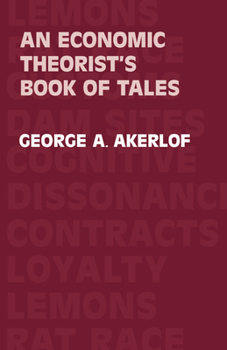An Economic Theorist's Book of Tales
Select Format
Select Condition 
Book Overview
These essays explore what happens when a skilful economist makes unconventional assumptions. Economic theory has traditionally relied upon a tacit and 'classical' set of assumptions that have gradually acquired a life of their own in defining how economists write and how they justify economic models. Similarly, these assumptions have acquired an autonomous character: they guide the way economists think about the world. In consequence, consideration of alternative assumptions has become taboo. These essays are substantively and stylistically novel because they break these taboos and bring new assumptions into economic theory. The papers apply this adventurous approach to a wide range of issues - from insurance markets and trade in underdeveloped countries to unemployment and discrimination. Some of the essays derive the implications for economic markets of costly asymmetric information. Others explore the findings of other social sciences such as anthropology, psychology and sociology.
Format:Paperback
Language:English
ISBN:0521269334
ISBN13:9780521269339
Release Date:October 1984
Publisher:Cambridge University Press
Length:208 Pages
Weight:0.58 lbs.
Dimensions:0.6" x 5.5" x 8.4"
Customer Reviews
1 rating
Akerlof Entertains While Educating
Published by Thriftbooks.com User , 24 years ago
Beautifully simple models to explain common phenomena economically. Why do the values of used cars depreciate so much relative to new? (and why are there so many that are "lemons"). Does it make sense to use statistical indicators (e.g., be racist or otherwise biased)? When? Lots of simple models in the spirit of Becker. A must read.





